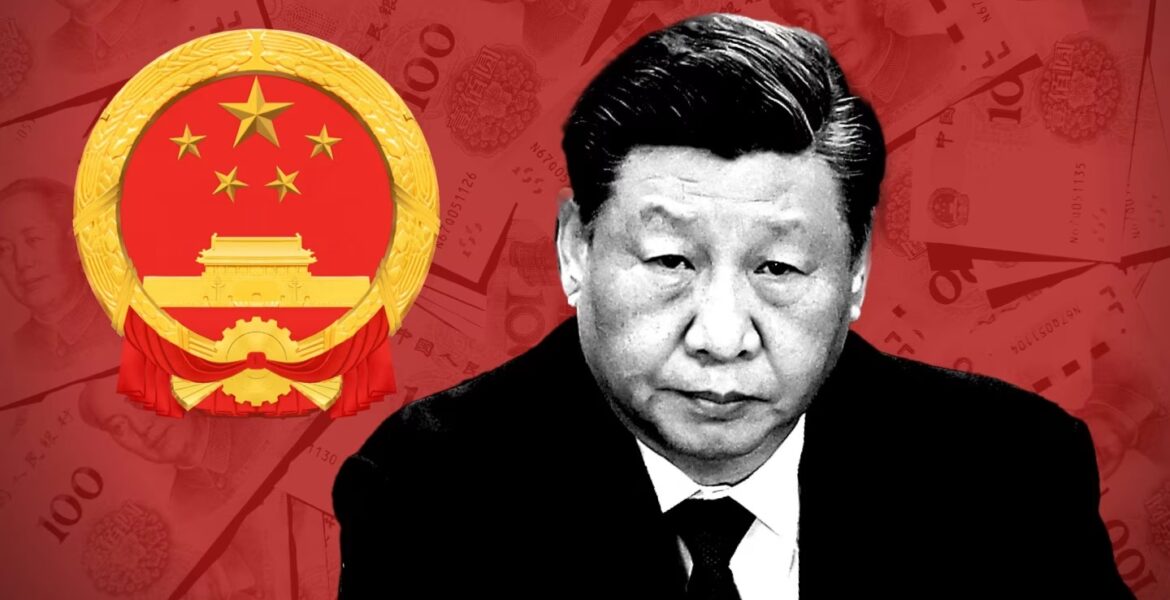Greek City Times: China’s dictatorial overtures at the Shanghai Cooperation Organisation

The Shanghai Cooperation Organization (SCO) has emerged as a pivotal forum for the Chinese Communist Party (CCP) to showcase and advance its geopolitical interests. The grouping, established in 2001, comprises major central Asian countries focused on enhancing the region’s overall security and economic development. Having said so, China’s centrality in the forum has significantly restricted countries such as India and Russia’s involvement with the region through the forum.
China’s hegemonic policy in Central Asia
Beijing’s strategy in the forum has been twofold: first, it has constantly attempted to gain economic leverage over member countries by expanding its Belt and Road Initiatives (BRI) into the region. Second, Beijing has been utilising the forum to consolidate its influence globally by enhancing its diplomatic tools.
The excessive financial investment in infrastructure projects across Central Asia, extended through Chinese development banks, has created enormous dependencies and has enhanced Beijing’s leverage over these countries. These loans for hard infrastructure have more often than not gone on to affect the economic viability of the region. Not only is China the largest single-party lender of development finance among the developing countries, but it also owes a significant portion of the developing world’s debt.
China’s use of the SCO as an instrument for promoting security cooperation has also led to the consolidation of its regional power. The organization’s emphasis on combating the three evils of terrorism, separatism, and extremism has been promoted by China as a way to legitimize its detrimental policies, particularly in the Xinjiang region. By framing its security agenda within the SCO’s objectives, China has attempted to legitimise its human rights violations against the Uighur Muslims.
The CCP has implemented severe measures to control religious practices in the Xinjiang region, including the demolition of mosques and religious sites while also prohibiting the teaching of religion to minors. Furthermore, Surveillance systems have been installed at religious sites with leaders closely being monitored and detained. Moreover, the vast energy and strategic resources that the Xinjiang region sits upon has had considerable impact upon how the Chinese perceive the Uyghur minority in the country. Xinjiang is undoubtedly strategically important for China due to its vast energy resources and location along the Silk Road Economic Belt.
India as a check and balance within the SCO
The inclusion of India as full member in 2017 has added a new dimension to the SCO, limiting China’s leadership of the grouping with additional challenges to dictate regional dynamics. India’s presence has severely complicated the geopolitical landscape for Beijing and even more so in the SCO grouping, limiting its control to securing its interests. This has also presented the other regional members with a counterweight to tilt the balance away from Beijing in the region.
There is also a growing recognition that China’s economic investments often come with conditionalities leading to fears of overdependence and loss of sovereignty. The asymmetry in economic power and influence between China and other SCO members has also resulted in occasional frictions and can only be expected to intensify with Beijing over-stretching its arms to secure its geopolitical interests at the cost of other regional players.
With India in the SCO grouping, its focus has majorly relied on advocating regional development through such multilateral platforms. New Delhi’s regional agendas have laid emphasis on the climate and energy crisis, infrastructural development, environmental sustainability as well as reginal security. It has also been emphasizing upon the need for taking strong and decisive action to address the global climate crisis, with a particular focus on the role of renewable energy and green technologies.
The focus of cooperating in these domains offer the opportunity to further connect with its region especially in times of crisis which has the potential to cause serious repercussions for the overall global economy. China on the other hand has advocated less for the region as a whole but more for its own geo-strategic interests. Hence countries in the SCO grouping must realise sooner than later, that cooperation with Beijing comes at a very heavy cost.
In conclusion, by integrating Central Asian economies into China’s broader economic framework, Beijing has ensured that these countries remain aligned to own its strategic interests. China’s hegemonic role within the organization underscores its broader policy of exerting influence and securing its strategic objectives in Central Asia and more importantly globally. Therefore, as the SCO continues to evolve, China can be expected to further imprint its role as a hegemonic leader in the grouping. The challenge for member states thus in these cases will be to navigate their dynamics with China while safeguarding their own sovereignty and interests.
Source: Greek City Times

 Ακολουθήστε το
Ακολουθήστε το